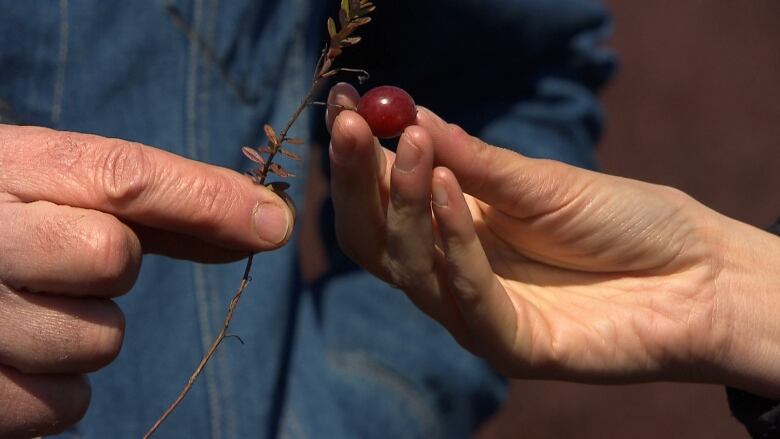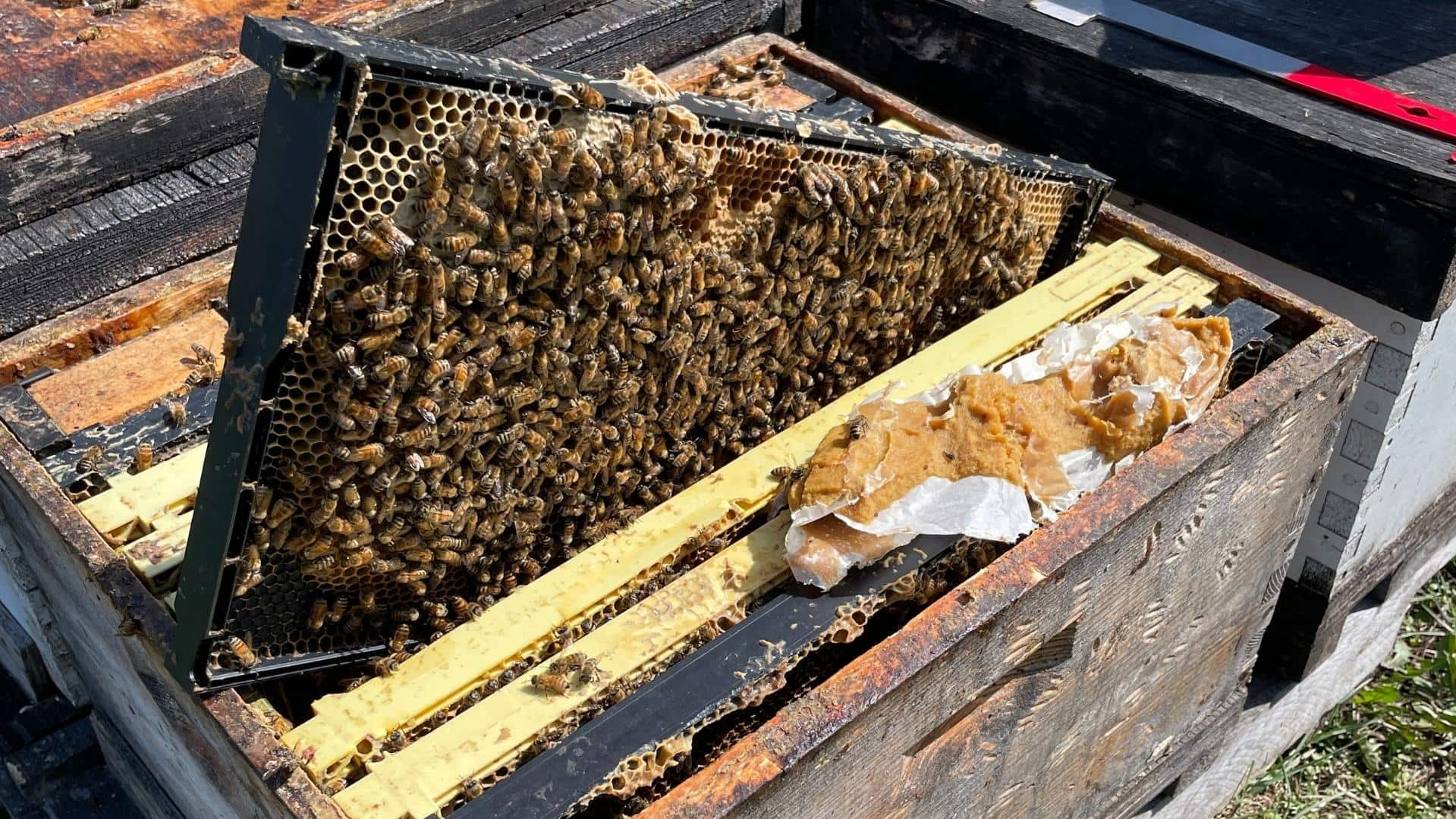Bee shortage threatens Quebec’s cranberry industry
5 min readCranberry farmer Luc Decubber has last but not least found enough honey bees to pollinate his vines this calendar year. It wasn’t a easy feat, he explained, and it can be one particular he problems could turn into even more challenging to realize in several years to arrive.
“We are chatting with the beekeepers and they say [they] have a great deal of fatalities in the course of the winter, and particularly this year,” he explained.
The beekeeper who usually rents to Decubber expects to get rid of about half of his hives this year.
Decubber puts it just: without having bees, his farm Canneberges Bécancour can not survive.
“If there is not an animal or an individual to pollinate [the flowers], we will have no fruit,” said the former banker, who now devotes all his time to his farm of about 160 hectares.

The farm, which is positioned in Saint-Louis-de-Blandford, Que., a compact city about two hours northeast of Montreal, made use of to depend on native pollinators when it commenced approximately 30 decades back.
But there are not enough native pollinators to protect the farm’s increasing footprint anymore, so like several other fruit producers, Decubber has been pressured to rent honey bees to pollinate the modest white flowers that finally turn into cranberries.
Every single summer season, he rents some 1,000 hives, which he sets up close to the bogs the place the cranberries expand.
Bees essential aspect of foodstuff chain supply
The region in which Decubber is situated is occasionally referred to as Canada’s cranberry funds, and is 1 of the most significant producers of the fruit in the entire world.
The industry delivers in hundreds of tens of millions of dollars and offers hundreds of careers. But if the bee populace retains declining, it could be in peril.
Canadian farmers are concerned that bee populations harmed by mites, climate modify and pesticides will necessarily mean very poor harvests this period.
“If we have no bees, I really don’t believe we are likely to survive,” stated Decubber. “We definitely have to have them.”
Paul Kelly, supervisor of University of Guelph’s Honey Bee Research Centre, echoes that concern.
Honey bees are crucial for agriculture in Canada, he said. “About a 3rd of the food that we consume, and it truly is the most healthy and delectable component of our diet program, is pollinated by bees.”
“Fruits, seeds, nuts, berries, greens — all all those types of factors reward from bee pollination.”
But in the past number of yrs, it’s been a lot more difficult for farmers like Decubber to discover hives to lease.
Honey bee losses have gone up considering the fact that about 2007, in accordance to Kelly. It truly is a trend that problems Decubber.
“It will have an effect, you see previously this yr it was tricky to get the hives that we want,” stated the cranberry farmer.

Decubber said cranberry farmers will have to obtain substitute solutions, these types of as making use of bumble bees. But even that is not perfect simply because bumble bee hives have considerably fewer bees than honey bee hives, he mentioned.
A single long-term alternative Decubber is performing on is hoping to draw in normal pollinators back again by planting indigenous bushes close to the cranberry bogs.
But in the small phrase, Kelly expects fruit and vegetable producers will see a shortage mainly because so quite a few beekeepers missing their bees this calendar year.
He reported those beekeepers will have to borrow hives from other producers to meet the demand.
“It is gonna be a big problem for the beekeeping market and it could have an affect on the pollination assistance as perfectly,” he explained.
Devastating wintertime for quite a few beekeepers

Sébastien Laberge is a 3rd-generation beekeeper and honey producer who operates La Miellerie St-Stanislas with his spouse and children in Saint-Stanislas-de-Kostka, Que., about an hour southwest of Montreal.
Laberge missing 70 for every cent of his bees more than the winter season. That has been devastating for his business simply because half of his revenues arrive from renting out his bees to blueberry, apple and vegetable farms for pollination.
“We get calls every single working day for both blueberry, cranberry. We just never have any bees proper now to deal out,” he said.
Laberge is not the only beekeeper emotion the sting this time. A lot of other bee producers in the province, and Canada, have uncovered unpleasant surprises when they opened their hives this spring.
Varroa mites, a parasite that kills the bees, is suspected to be the most important offender driving the bee losses in the place this yr.
Monoculture, the cultivation of a one crop, also weakens the bees’ overall health mainly because it provides them with only one nutrient supply.

Laberge thinks other good reasons may possibly be contributing to their decrease: pesticides, fungicides and local weather modify.
“It really is a bunch of different environmental troubles that possibly killed our bees.”
Laberge mentioned he was fortunate due to the fact he was in a position to safe bees imported from Australia to rebuild his hives.
But he estimates that in Quebec by yourself there will be a lack of about 10,000 hives this calendar year.
“At the conclusion of the day we are all likely to be on the losing close if almost nothing changes,” he said.






